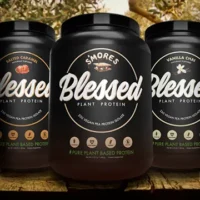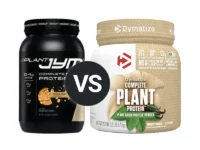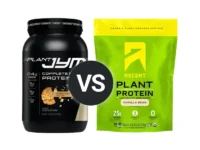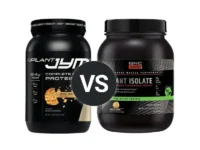Knowledge BaseYou're Questions Answered
Is blessed a complete protein?
Blessed Protein is a popular plant-based protein powder that is particularly well-regarded among those following vegan or vegetarian diets. It is made primarily from pea protein isolate, which is derived from yellow split peas. While pea protein is often praised for its high-quality protein content, it is important to understand its limitations, particularly when it comes to being classified as a "complete" protein.
1. What is a Complete Protein?
- A complete protein contains all nine essential amino acids in sufficient quantities to meet the body’s needs. These amino acids are crucial for various bodily functions, including muscle repair, hormone production, and immune function.
2. Is Blessed Protein a Complete Protein?
- Pea Protein Isolate: Blessed Protein is made from pea protein isolate, which does contain all nine essential amino acids. However, it is technically not considered a complete protein because it has lower levels of methionine, one of the essential amino acids1. While pea protein is an excellent source of other essential amino acids, particularly lysine, the lower methionine content means it doesn’t fully meet the criteria for a complete protein.
- Amino Acid Profile: Despite not being technically complete, pea protein is still highly valuable in a balanced diet. Its amino acid profile makes it a strong contender for muscle repair and growth, especially when combined with other protein sources that can complement its lower methionine levels, such as rice protein or grains2.
3. Unique Benefits of Pea Protein
- Digestibility: Pea protein is easily digestible, making it a suitable option for individuals with sensitive stomachs or those who experience bloating with other protein sources.
- Allergen-Friendly: Unlike whey or soy protein, pea protein is hypoallergenic, making it a safe choice for individuals with common food allergies.
- Plant-Based Nutrients: Pea protein naturally contains beneficial nutrients such as iron, which is especially valuable for those on plant-based diets who may need to be more mindful of their iron intake.
- Environmentally Sustainable: Pea protein has a smaller environmental footprint compared to animal-based proteins, aligning with the values of those concerned about sustainability.
So, while Blessed Protein (based on pea protein isolate) is not technically a complete protein due to its lower methionine content, it remains a high-quality protein source with numerous benefits. It can be particularly effective when paired with other protein sources that complement its amino acid profile, making it a valuable part of a balanced diet for muscle repair, growth, and overall health.
- Gorissen, S. H., & Witard, O. C. (2018). Characterising the muscle anabolic potential of dairy, meat and plant-based protein sources in older adults. Proceedings of the Nutrition Society, 77(1), 20-31.
- Hoffman, J. R., & Falvo, M. J. (2004). Protein – Which is Best? Journal of Sports Science and Medicine, 3(3), 118-130.
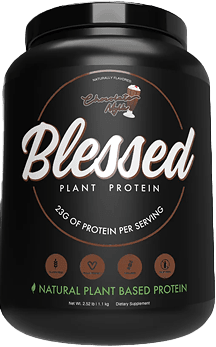
Your Answer
We are a participant in the Amazon Services LLC Associates Program, an affiliate advertising program designed to provide a means for us to earn fees by linking to Amazon.com and affiliated sites.

